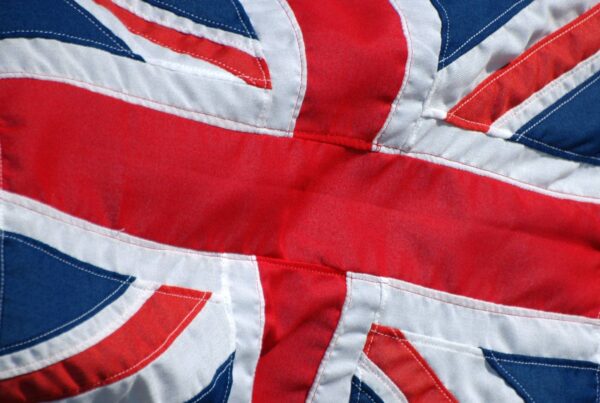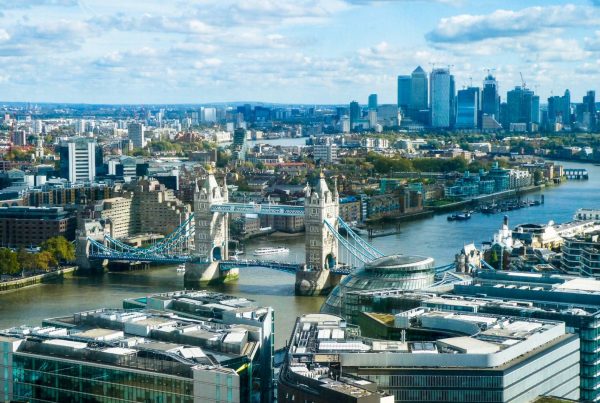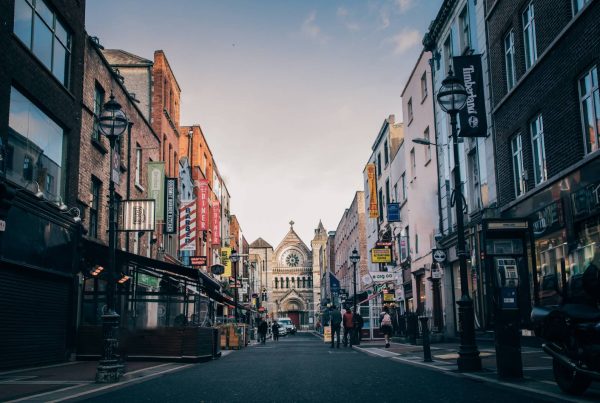Bank Holiday Guides & Tips
























The Next Bank Holiday in the UK: A Detailed Overview
The United Kingdom is known for its rich history, cultural diversity, and distinct traditions. An integral part of these traditions is the observance of public holidays, more commonly known as bank holidays. This guide offers an in-depth look at the next UK bank holidays, explaining what they represent, when they occur, and how they might affect your plans, particularly if you’re in London.
A Brief Introduction to UK Bank Holidays
Public holidays, or bank holidays as they are often called in the UK, commemorate various religious, historical, and unique events. The UK typically has eight bank holidays in a year, each with its unique significance and traditions. However, the impact of these holidays varies, with some resulting in significant closures and others barely affecting regular activities.
Bank Holiday Caveats
- In the event a bank holiday falls on a weekend, it’s standard practice to designate a ‘substitute’ weekday, typically the succeeding Monday, as the bank holiday.
- It’s crucial to note that employers are not legally obligated to provide paid leave during bank or public holidays. The terms of your employment contract dictate your entitlement during these periods.
- The timing and methodology of your benefit payments can be influenced by bank holidays. You may need to make special arrangements or anticipate changes to your usual payment schedule around these times.
Table of Contents
Next UK Bank Holidays 2025
When are the 2025 bank holidays?
- New Year’s Day – Wednesday 1 January
- St Patrick’s Day – Monday 17 March
- Good Friday – Friday 18 April
- Easter Monday – Monday 21 April
- Early May Bank Holiday – Monday 5 May
- Spring Bank Holiday – Monday 26 May
- Battle of the Boyne / Orangemen’s Day – Monday 14 July (substitute day)
- Summer Bank Holiday – Monday 25 August
- Christmas Day – Thursday 25 December
- Boxing Day – Friday 26 December
| Date | Day of Week | Bank Holiday | Country |
|---|---|---|---|
| 1 Jan | Wednesday | New Year's Day | England, Wales, Scotland, Northern Ireland |
| 2 Jan | Thursday | 2nd January | Scotland |
| 17 Mar | Monday | St Patrick’s Day | Northern Ireland |
| 18 Apr | Friday | Good Friday | England, Wales, Scotland, Northern Ireland |
| 21 Apr | Monday | Easter Monday | England, Wales, Northern Ireland |
| 5 May | Monday | Early May Bank Holiday | England, Wales, Scotland, Northern Ireland |
| 26 May | Monday | Spring Bank Holiday | England, Wales, Scotland, Northern Ireland |
| 14 Jul | Monday | Battle of the Boyne (Orangemen’s Day) (substitute day) | Northern Ireland |
| 4 Aug | Monday | Summer Bank Holiday | Scotland |
| 25 Aug | Monday | Summer Bank Holiday | England, Wales, Northern Ireland |
| 1 Dec | Monday | St Andrew's Day (substitute day) | Scotland |
| 25 Dec | Thursday | Christmas Day | England, Wales, Scotland, Northern Ireland |
| 26 Dec | Friday | Boxing Day | England, Wales, Scotland, Northern Ireland |
Next UK Bank Holidays 2024
When are the 2024 bank holidays?
In 2024, the United Kingdom will observe a series of bank holidays, with variations across England, Wales, Scotland, and Northern Ireland. Here’s a distinctive overview of these dates:
England and Wales:
- New Year’s Day: Monday, January 1
- Good Friday: Friday, March 29
- Easter Monday: Monday, April 1
- Early May Bank Holiday: Monday, May 6
- Spring Bank Holiday: Monday, May 27
- Summer Bank Holiday: Monday, August 26
- Christmas Day: Wednesday, December 25
- Boxing Day: Thursday, December 26
Scotland:
- New Year’s Day: Monday, January 1
- Additional Holiday: Tuesday, January 2
- Good Friday: Friday, March 29
- Early May Bank Holiday: Monday, May 6
- Spring Bank Holiday: Monday, May 27
- Summer Bank Holiday: Monday, August 5
- St Andrew’s Day: Monday, December 2
- Christmas Day: Wednesday, December 25
- Boxing Day: Thursday, December 26
Northern Ireland:
- New Year’s Day: Monday, January 1
- St Patrick’s Day (Substitute Day): Monday, March 18
- Good Friday: Friday, March 29
- Easter Monday: Monday, April 1
- Early May Bank Holiday: Monday, May 6
- Spring Bank Holiday: Monday, May 27
- Battle of the Boyne (Orangemen’s Day): Friday, July 12
- Summer Bank Holiday: Monday, August 26
- Christmas Day: Wednesday, December 25
- Boxing Day: Thursday, December 26
| Date | Day of Week | Bank Holiday | Country |
|---|---|---|---|
| 1 Jan | Monday | New Year's Day | England, Wales, Scotland, Northern Ireland |
| 2 Jan | Tuesday | 2nd January | Scotland |
| 18 Mar | Monday | St Patrick’s Day (substitute day) | Northern Ireland |
| 29 Mar | Friday | Good Friday | England, Wales, Scotland, Northern Ireland |
| 1 Apr | Monday | Easter Monday | England, Wales, Northern Ireland |
| 6 May | Monday | Early May Bank Holiday | England, Wales, Scotland, Northern Ireland |
| 27 May | Monday | Spring Bank Holiday | England, Wales, Scotland, Northern Ireland |
| 12 Jul | Friday | Battle of the Boyne (Orangemen’s Day) | Northern Ireland |
| 5 Aug | Monday | Summer Bank Holiday | Scotland |
| 26 Aug | Monday | Summer Bank Holiday | England, Wales, Northern Ireland |
| 2 Dec | Monday | St Andrew's Day (substitute day) | Scotland |
| 25 Dec | Wednesday | Christmas Day | England, Wales, Scotland, Northern Ireland |
| 26 Dec | Thursday | Boxing Day | England, Wales, Scotland, Northern Ireland |
UK Bank Holidays History
| Bank Holiday | Reason | Country |
|---|---|---|
| New Year's Day | Celebration of the New Year | England, Wales, Scotland, Northern Ireland |
| 2nd January | Extra day off for New Year's Day | Scotland |
| St Patrick's Day | Feast day of St. Patrick, the patron saint of Ireland | Northern Ireland |
| Good Friday | Commemorates the crucifixion of Jesus and his death at Calvary | England, Wales, Scotland, Northern Ireland |
| Easter Monday | Day after Easter Sunday | England, Wales, Northern Ireland |
| Early May Bank Holiday | First Monday of May, celebrates workers' rights | England, Wales, Scotland, Northern Ireland |
| Spring Bank Holiday | Last Monday in May, marks the start of the summer half-term | England, Wales, Northern Ireland |
| Battle of the Boyne (Orangemen's Day) | Commemorates the Battle of the Boyne, fought in 1690 | Northern Ireland |
| Summer Bank Holiday | Last Monday in August, marks the end of the summer holidays | England, Wales, Northern Ireland |
| St Andrew's Day | Feast day of St. Andrew, the patron saint of Scotland | Scotland |
| Christmas Day | Celebration of the birth of Jesus Christ | England, Wales, Scotland, Northern Ireland |
| Boxing Day | Day after Christmas Day | England, Wales, Scotland, Northern Ireland |
Understanding the Impact of Bank Holidays on UK Life
Impact on Businesses and Attractions
During bank holidays, you might find that some businesses and attractions in London are closed or have limited opening hours. This is particularly true for larger establishments and government-run institutions. Therefore, it’s prudent to check the opening times of any places you plan to visit during these days. You might find that some locations have reduced hours, while others might not open at all.
Public Transport During Bank Holidays
It’s also important to note that public transport may operate on a reduced schedule during bank holidays. This includes buses, trains, and even some flights. On Christmas Day, public transport in London does not operate at all, and on Boxing Day, the service is quite limited. Therefore, if you’re planning to travel around the city, it’s crucial to check the Transport for London website in advance to plan your journey accordingly.
Specific Holidays: Christmas and Easter
Christmas Closures
Christmas Day (25th December) and Boxing Day (26th December) are unique among UK bank holidays in that they lead to the most widespread closures. London, known for its bustling streets and lively atmosphere, takes on a quieter mood during these holidays. Most attractions, shops, and many restaurants are closed, and as mentioned earlier, public transport does not operate on Christmas Day and runs a limited service on Boxing Day.
Easter Sunday Regulations
Easter, another significant holiday, has specific rules associated with it. On Easter Sunday, large shops (over 280 square meters) are required by law to close their doors, though smaller establishments have the option to remain open. Public transport services may also run on a reduced schedule over the long Easter weekend.
Things to do on a Bank Holiday Weekend
Despite some closures, bank holidays also present excellent opportunities to explore the city in a new light. With a bit of planning, you can enjoy a range of activities, from visiting top attractions and engaging in family activities to discovering new areas of the city. You might also consider getting a sightseeing pass, which can provide access to numerous top sights over the bank holiday weekend.
Some of the bank holidays present special opportunities. You can kick off the year with various New Year’s Day activities, enjoy an action-packed Easter weekend, or celebrate the arrival of spring during the early May bank holiday and the spring bank holiday later in the month. The summer bank holiday offers a great time to soak up the sun and enjoy the carnival atmosphere in London. And as the year winds down, there are plenty of fun Christmas activities, including unique things to do on Christmas Day.
In conclusion, while bank holidays in the UK may lead to some closures and reduced services, they also provide unique experiences and opportunities to explore London from a different perspective. With a bit of planning and an open mind, you can create unforgettable memories on these special days.
National Holidays in the United Kingdom
National holidays in the United Kingdom serve as an important part of the country’s cultural fabric, reflecting its rich history, diverse traditions, and shared values. While the UK as a whole observes certain public holidays, it’s worth noting that England, Scotland, Wales, and Northern Ireland each have their own unique holidays as well. This speaks to the distinct cultural identities that coexist within the union.
The Concept of Bank Holidays
In the UK, the term “bank holiday” is often used interchangeably with “public holiday” or “national holiday”. These are designated days when most businesses and non-essential services, including banks, are closed. The purpose is to allow people to have a day off work, often resulting in long weekends that are ideal for leisure activities, family gatherings, and travel.
Regional Variation
Given the UK’s devolved system of government, public holidays can vary between its constituent countries. This allows regions to celebrate days that are specifically meaningful to them, be it due to historical events, cultural figures, or religious observances.
Cultural Importance
National holidays are more than just days off work; they often serve as communal focal points. Depending on the holiday, celebrations can range from solemn remembrances and religious ceremonies to lively festivals and parades. Such occasions offer valuable opportunities for social interaction and community bonding, contributing to the national identity.
Seasonal Influence
Many holidays coincide with seasonal changes, offering a chance for various outdoor activities and the celebration of natural cycles. These are times when people often engage in traditional practices, like spring festivals or harvest celebrations, which have been passed down through generations.
Economic Impact
The leisure and tourism sectors typically see a surge in activity during national holidays, making them important economic drivers. Retailers often offer special sales, and there’s a noticeable uptick in domestic travel as people take the opportunity to explore different parts of the country.
Flexibility and Modern Trends
While the core set of public holidays has remained largely stable over time, there is ongoing debate about introducing new holidays that better reflect the UK’s evolving cultural landscape. Campaigns for additional holidays honoring significant historical figures or cultural milestones occasionally gain traction, indicating the dynamic nature of how the UK observes these special days.
Understanding the significance and diversity of the UK’s national holidays provides valuable insights into the nation’s complex cultural identity, shared values, and communal practices.



